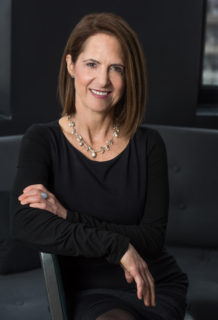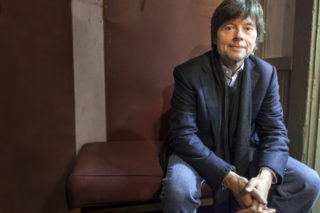Q & A with Filmmakers Ken Burns and Lynn Novick of “The Vietnam War”
By Heidi Zimmerman | The Vietnam Veterans Memorial Fund (VVMF)
Q: Why was it important for you to tell the story of Vietnam?
Ken: I think the Vietnam War is arguably the most important event of the second half of the 20th century. It’s a defining moment.
Lynn: It’s an extraordinarily important period in history and it is very much unresolved. It is extremely painful and divisive in our culture and it is very poorly understood. We felt it was important to take a look at the story of the war, what happened and why. And perhaps most important – why is it such a difficult subject for us to talk about as a country? Mission one for us was to honor the service and sacrifice of the people who served and died. Give them their due respect as part of the larger story of what our country went through and also what this experience meant for the Vietnamese people.
Q: How do you tell the story of the most divisive period within our nation during the 20th century?
Ken: I think you want to tell a complete story so we’ve taken 10 episodes and 18 hours to do it. We’ve worked on this story for 10 years. The film represents 45 years of scholarship that adds on to the experiences of the service members. Obviously, war is human beings at its worst but it also paradoxically brings out the best and we’ve not neglected to point out those positive aspects, those heroic aspects, at the same time we delve into a war that many Americans would rather ignore.
Lynn: We set out to take a fresh look at this very complicated and divisive story through the eyes of the people who lived through it and to hear from as many different people with as many different experiences and perspectives that we could practically embrace. We interviewed close to 100 people. One of the tragedies of the Vietnam War is that America got involved in a conflict in a country far away that we didn’t really understand. We didn’t understand our allies or our enemies. We as filmmakers did not want to make that same mistake. I spent a lot of time in Vietnam getting to know people who lived through the war there and hearing from civilians and soldiers. And also speaking to Vietnamese-Americans who fled Vietnam after the war. What we found was that the war is as complicated and unresolved and as difficult to talk about for them on all sides as it is for us.
Q: How do you think the Vietnam era changed our country?
Ken: I think it really split it down the middle and in some ways the divisions that we experience today had their seeds in the Vietnam War. Of course the Civil War ripped huge divisions that are still with us too but I think Vietnam began to have people become cemented in their place and blinded by their particular ideology. I think it’s important to try to step back and see the larger picture. I think Vietnam is a hugely important, watershed moment in American history.
Lynn: I think it’s impossible to look at our country today and not trace back many of the things that concern us back to the Vietnam era. It really split the country down the middle and we’ve never moved on from that. It ties into how the soldiers felt disrespected and this question of blaming the warrior for the war. That I really think is the one lesson we learned as a country and that we’ll never make that mistake again.
Q: Why does Vietnam still matter?
Ken: Just think about it. You want to understand Wiki leaks? Let’s go back to the Pentagon papers. You want to understand about meddling in foreign affairs, about political parties reaching out to foreign powers that’s right now in the news? That’s in the story of Vietnam. You want to find out about the disconnect between the generals who make the plans and the service members who do the fighting and dying? Vietnam reveals this. To understand Vietnam is to arm yourself in the best sort of way for how to deal with our present incredibly fraught moments. It couldn’t be more relevant than it is today.
Lynn: It was all-consuming to try to figure out the story we’re telling and to tell it well. I started off thinking I knew a fair amount about the Vietnam War. The reason that I wanted to make the film was because I had always been fascinated by it. I thought I knew a lot. The more I worked on the film, the more I knew I didn’t know so much after all. It’s a very difficult subject to understand. I don’t think we can understand who we are as a country without understanding what happened during Vietnam.
Q: What did you learn from making this film?
Ken: I grew up in the war. I had a high draft number, I didn’t go. I was completely aware that I came of age watching it. I felt like I knew something about it. I knew nothing about it – nothing. And so to me – It was this shear positive humiliation of suddenly just realizing I know nothing and that I had to really build back from the beginning. The film is this deep, deep dive into the things that I thought I knew and in some case I came to the understanding that not only I, but most of us, have just a conventional wisdom about it, kind of a superficial knowledge.
Lynn: One thing that I learned that I will carry with me is that history is a lot more complicated than we give it credit for. There is no story that I’ve tried to tell that is more complicated than this. With any one aspect that we tried to tell – there were at least three points of view or more. It was a constant exercise in compassion. To try to understand how you could look at this particular battle from this point of view vs. this point of view. It’s important to be open to considering that things are not as simple as they seem.
Q: What impact do you think The Wall has had on our country?
Ken: Our scene of The Wall in our last episode is one of the most powerful scenes in the entire film. We reference The Wall without saying anything about in almost every episode. In our 10th episode, we tell the story of the competition, of the controversy, of the building and then its response in which suddenly in the presence of that gash in the ground – it’s as if it just asked people to say “shh, shh, shh, be quiet, stop talking, you don’t need to argue – just come here.” It is beyond effective. It’s one of the greatest works of art that I know.
Lynn: I think what it did was it gave a place to go to collectively mourn and to honor the dead and to contemplate the true cost of war and the sacrifice that people made. It gave people a physical place to do that. It’s a gift to our country. It transcends the Vietnam War. It’s evolved into this place where people can come together and contemplate the human condition. I think that’s why so many people come there and leave things. They contemplate what it means to be alive.
The Vietnam War premieres Sunday, September 17 – Thursday, September 21 & Sunday, September 24 – Thursday, September 28 – Episode Descriptions
VVMF is a promotional and outreach partner for PBS, THE VIETNAM WAR, and member stations.



